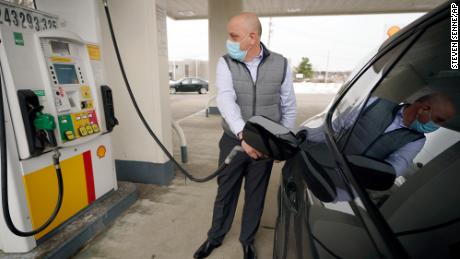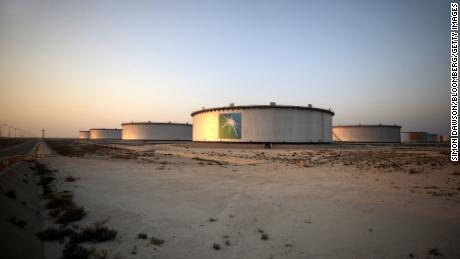Jennifer Granholm, the US energy secretary, said on Wednesday that she had a “positive” call with Saudi energy minister Abdulaziz Bin Salman. “We reaffirmed the importance of international cooperation to ensure affordable and reliable sources of energy for consumers,” Granholm said on Twitter.
The timing and substance of the call suggest that the United States would like to see oil supplies increase following a 70% spike in the price of Brent crude, the global benchmark, over the past five months. US gasoline prices have also risen sharply to an average of $2.88 per gallon.
OPEC and allied producers are meeting Thursday to discuss whether to extend or adjust coordinated production cuts that have helped prices recover from a dramatic collapse in 2020 that was triggered in part by a sharp drop in demand caused by the coronavirus pandemic.
The OPEC+ group has been holding back roughly 8 million barrels per day from global markets. That includes an extra production cut of 1 million barrels per day from Saudi Arabia that comes on top of its commitment made to other producers.
Rising prices have made producers more confident that supply cuts have put the market on a solid footing following the pandemic crash. But the last time the group reviewed its policy in March, it chose to play it safe, wary of a potential resurgence of the pandemic that could limit demand for energy.
The cautious approach may now be paying off. Europe faces a dramatic surge in coronavirus cases that is forcing France back into lockdown and straining the health care system in Germany.
An OPEC+ committee reduced its estimate for global oil demand growth earlier this week as a result of the deteriorating situation in Europe, which could sharply limit demand for flights and travel for a second consecutive summer. It now expects oil demand to grow by 5.6 million barrels per day this year, down from an earlier estimate of 5.9 million barrels per day.
The revision suggests that the US call for affordable energy may fall on deaf ears.
“The order for the Joint Technical Committee to reduce its oil demand forecast is unusual,” said Michael Hsueh, an analyst at Deutsche Bank. “The obvious message is one of confidence that a hawkish (supply-limiting) decision will be finalized … with ease.”
— John Defterios contributed reporting.

